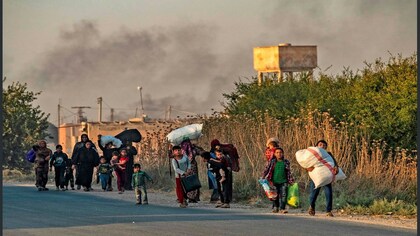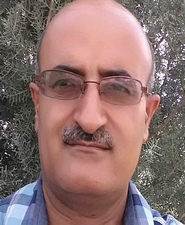A growing Iranian threat, in wake of U.S. withdrawal
16:23 - 14 December 2011

When U.S. military forces finish their withdrawal from Iraq at the end of December, thousands of Americans will remain in the country carrying out a diplomatic mission aimed in part at curbing the influence of Iran on its neighbor.
“Cumulatively looking at both the Iranian interests and the Iranian influenced groups, the threat which they pose to this installation and to the U.S. interest in Iraq is clear,” said Consul General Piper Campbell.
Campbell is one of over a thousand people who will remain at the consulate in Basra after the military withdrawal. The U.S. consulate in Basra is strategically located at the center of Iraq’s economic wealth: its oil fields. It’s also just miles from Iraq’s border with Iran.
“There’s a real recognition that I hear from many people here of Iran watching, of Iran looking at what’s going on here, of Iran looking for opportunities to influence both here in the Shia south, but throughout Iraq,” Campbell said.
The influence of Iran in the southern region of Iraq is clear. Most of the rocket attacks on the U.S. consulate in Basra are done by local Iraqis using weapons smuggled across the border from Iran.
Campbell said that Iraq’s control and protection of its oil fields from Iranian influence is key to both its economic and political stability. She said that what happens with Iraqi oil is of genuine interest to the United States.
“It’s easy to understand why oil is important to Iraq. It’s their major commodity, it’s the driver of their economy,” Campbell said. “Having a stable and thriving Iraq is important for this neighborhood, but having an Iraq that is a major oil producer is also important for the international economy and that includes the United States.”
Jim Jeffrey, the U.S. Ambassador to Iraq, said that American interest in Iraqi oil relates to several other key American and global interests in the region, including the threat of Iran’s nuclear program.
“Oil wealth…too often in this region has been used to finance armies that march across borders and to finance weapons of mass destruction and to allow dictators to stay in power and has indirectly led to the creation of terrorist movements,” Jeffrey said. “I would be at pains to select any one single element that would affect American people more than any other. Obviously, oil prices are very important, but as we saw on Sept. 11, the terrorist threat from this region is also important for America.”
The U.S. Navy has been training Iraqi sailors how to use patrol ships and swift boats donated to Iraq by the U.S. government.
“These are patrol ships and the basics are protection of the Iraqi critical oil infrastructure in the territorial water,” Rear Admiral Kelvin Dixon said. “The Iraqis are concerned about the Iranians and the Iranian influence.”
Dixon oversees the training of Iraqi naval forces in the southern port city of Umm Qasr. Dixon said that rocket attacks could incapacitate the port, but that U.S. military forces would be a call away to help Iraqis. The question is will the Iraqis call.
Canon Andrew White is the pastor of St. George’s Anglican Church in Iraq which has the largest congregation of Christians in Iraq. White has lived in Iraq both under Saddam Hussein’s regime and throughout the war.
“One of the things that we have to look at again is the influence of religion. Iran is the other major Shia country and so the Shiite influence is very considerable,” White said.
White said that Iran influences Iraq more than the United States.
“The fact is that Iraq now is terrible and it’s impossible to have hope for the future of Iraq,” White said.
By Jessica Hopper- Rock Center / MSNBC



